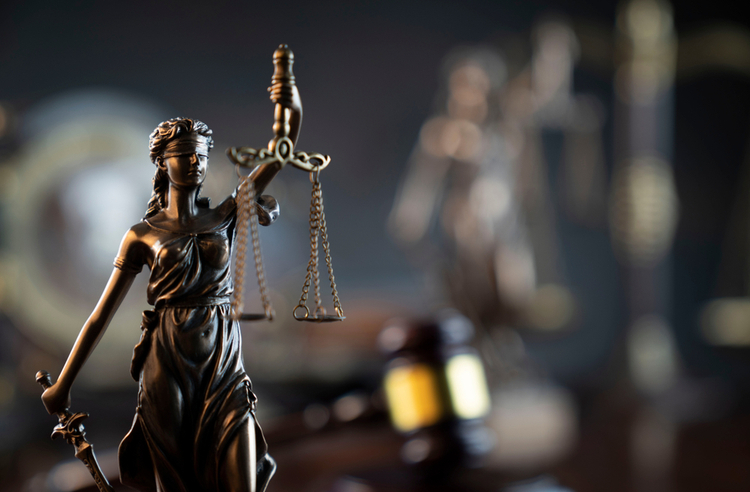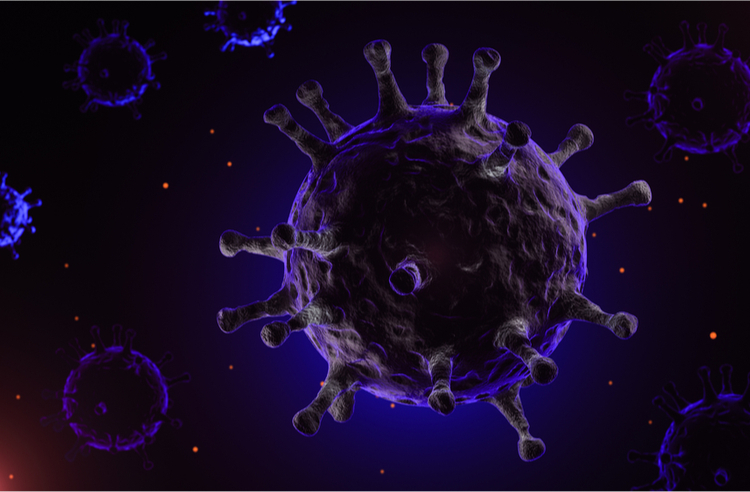Pandemic power plays: Civil liberties in the time of COVID-19

Image from Shutterstock.com.
In halls of power across the country, the growing novel coronavirus pandemic has sometimes been used to stretch, bend or ignore established law and policy. Fundamental freedoms, privacy protections and access to justice have been curtailed in the name of public safety, with legal justifications ranging from appropriate to patently inaccurate.
At a press briefing April 13, President Donald Trump declared that he had the “ultimate authority” to roll back restrictions imposed by states across the nation in response to the COVID-19 pandemic.
“The authority of the president of the United States having to do with the subject we’re talking about is total,” he said. “I have the ultimate authority.”
While his declaration was widely panned, the sentiment behind it stirred increased debate about infringement on civil liberties and abuse of emergency powers.
The power to respond to a public health crisis exists in the U.S. Constitution, state constitutions, regulations and case law. But the way they fit together is not always clear, especially in the wake of a modern-day global crisis.
“I don’t think there’s a playbook for this,” says Caleb Kruckenberg, litigation counsel for the New Civil Liberties Alliance in Washington, D.C., which focuses on administrative law and constitutional freedom.
The concept of quarantines is not new, he says, but applying them to a globalized society “is unprecedented.”
Framers’ Foresight
The framers were familiar with forced isolation and its importance to public health—there have been colonial laws covering quarantine since at least the early 1700s. And the commerce clause of the Constitution allows Congress to respond to a public health crisis that affects interstate trade.
Today, the federal government’s primary pandemic response strengths are in funding, through the Stafford Disaster Relief and Emergency Assistance Act; coordinating response powers, through the Federal Emergency Management Agency and the Centers for Disease Control and Prevention; and regulating international borders, says Meryl J. Chertoff, a professor at Georgetown University Law Center in Washington, D.C., who is also the executive director of the Project on State and Local Government Policy and Law.
In the aftermath of the Ebola virus epidemic in West Africa, the Obama administration broadened federal powers to regulate travel of potentially infected people. But Chertoff is quick to point out this applies only to interstate travel.
“What happens inside the states still belongs with the governors,” she says.
Now that Trump has compared his powers to that of a king, without legal authority, Chertoff warns that his next act might involve issuing an executive order incorporating what she calls “coercive federalism”—a practice that his administration has employed in the past that uses a threat to withhold funding as a means to compel states to submit to a federal demand.
 Image from Shutterstock.com.
Image from Shutterstock.com.
Sanctity of the States
The 10th Amendment to the Constitution states: “Powers not delegated to the United States by the Constitution, nor prohibited by it to the States, are reserved to the States respectively, or to the people.” States also retain significant emergency powers to regulate public safety and health through their own state constitutions and legal precedent dating back to the early 1800s.
“If you go back to the origins of the republic in cases where there were epidemics—and there were frequently epidemics—the state governments were in control,” Chertoff says.
But the privileges and immunities clause can kick in if a governor takes it too far by restricting people’s movement from state to state, for example.
“Governors can only restrict movement by people out of state if there’s no less restrictive way to accomplish a legitimate goal,” Chertoff says.
She points to the roadblocks that Texas set up along its border to deny entry to people from Louisiana. This could prompt a constitutional question, she says, but one that could be answered by arguing that, in the absence of readily available and reliable testing, Texas’s exclusionary actions were actually least restrictive.
On the other side of the equation are cases in which the state and federal government aren’t doing enough to protect citizens.
Pamela R. Metzger, a professor and director of the Deason Criminal Justice Reform Center at Southern Methodist University’s Dedman School of Law in Dallas, says she’s closely watching the actions that states are taking to safeguard the health of their inmate populations.
With more than 2 million inmates behind bars, stopping the spread of the coronavirus requires significant action. Some states such as California and Illinois have released thousands of inmates, while other states such as Rhode Island have not.
“Rhode Island made a very big deal about releasing 52 people, but 52 people is not going to make a difference in how COVID-19 sweeps through that prison,” Metzger says.
Privacy Concerns
Topping Kruckenberg’s list of concerns is government cooperation with tech companies such as Facebook and Google to use smartphone location data to monitor and track people’s movements during quarantine.
While the U.S. Supreme Court has ruled that cellphone data is eligible for Fourth Amendment protections, “that goes out the window because this is a national emergency,” he says.
Big tech companies are also gearing up to share medical information gleaned from digital screening tools with the government, connecting it with location information to speed up contact tracing. Kruckenberg acknowledges that such strategies can save lives, but stresses he that the unchecked exchange of private medical information must not outlast the coronavirus.
Once the government and government agencies gain access to this type of protected information, he warns, “They’ll be very reluctant to give it up; they’ll keep it and keep monitoring it.”
Chertoff says she’s most concerned that the aggressive public health measures being taken today will establish dangerous precedents in the future.
“If the measures that are being taken now were understood by everyone to apply only to the current unprecedented and unique circumstances, then I would not be concerned about some fairly aggressive steps that have been taken,” she says. “My worry is that these steps will become precedent and will be cited not in an epidemic but in some other situation, where an authoritarian is trying to exercise extremely expansive executive power,” she says.
This worries Kruckenberg, too.
“It’s something we’ve seen before: When you take power, when you overreach, it’s really easy to do; but it’s very difficult to walk that back,” he says, citing the Patriot Act and Section 702 of the Foreign Intelligence Surveillance Act as prime examples. Both were enacted in the aftermath of the Sept. 11, 2001, terrorist attacks, and the effects of both continue today.
“Unfortunately, the takeaway is that people in power exploit emergencies,” Kruckenberg says.
See also:
ABAJournal.com: “Does Ebola fight require giving up civil liberties?”
ABAJournal.com: “Lawsuits over coronavirus quarantines are unlikely to succeed, experts say”
ABAJournal.com: “Civil-liberties experts teach students at NY high school what to do if stopped by cops”



